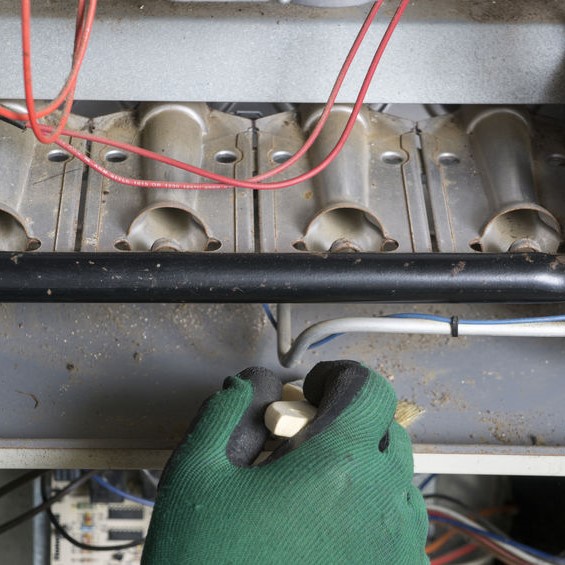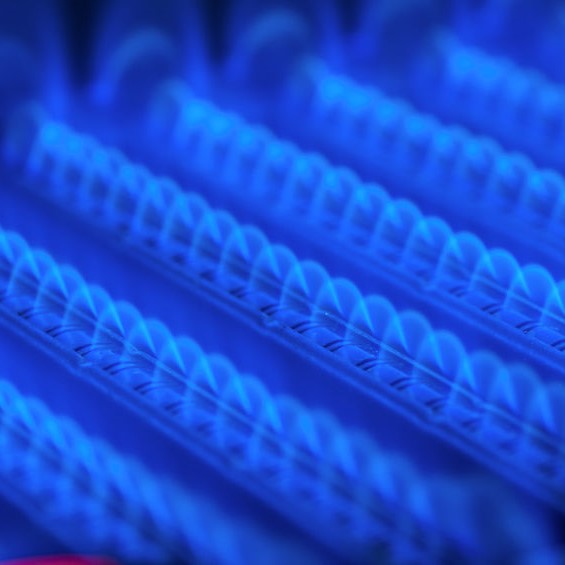
Heating your home
There are different ways to heat a home, which way you choose can be dependent on what energy source is available. You may have central heat which can be powered by electricity or gas, space heaters, which can be powered by electricity or gas too, and boilers. In this piece today, we’re going to discuss gas furnace heating.
A frequent question from common fear by the unknown is, “Can a furnace explode?” and the answer is yes, but not likely if the gas furnace is maintained. Although a gas furnace does have possibilities of catching on fire or exploding, it is unlikely. When any possible danger is present, the furnace usually shuts off. With a regular maintenance routine by the homeowner and annual inspections, the chances of a gas furnace fire or explosion are further reduced.
Do gas furnaces need to be cleaned?
When you have a gas furnace, gas furnace cleaning is number one thing in maintenance to assure the safety of having a gas furnace. The basic rule-of-thumb is to change or clean the filter monthly and have your gas furnace professional cleaned and inspected once a year, just before winter arrives.
As a homeowner, you should invest an hour or two yourself with basic gas furnace cleaning as well. Along with the annual professional gas furnace cleaning and inspection, you can avoid those emergency repairs and keep your furnace in peak operating condition. To do a basic gas furnace cleaning, follow these steps:
- Turn the electricity off at the breaker box and the gas off at the valve with a one-fourth turn.
- Clean the exterior surface with damp rag then remove the access door by and the burner cover. Using your household vacuum or a shop vac, carefully vacuum the burners, the furnace base, and inside the blower door compartment. If you notice any soot, schedule a professional gas furnace service call.
- Using a socket and ratchet, you can remove the blower by unscrewing the control panel and removing the blower motor gently. Then carefully clean the blower, caution not to disturb the counterweights on the fan blades or the electrical wiring.
- Clean the pilot or igniter by blowing through a drinking straw.
- Lightly clean the flame sensor with a fine emery cloth then slide it back.
- Inspect the drive belt for any cracks or fraying, replace the belt if needed.
- Remove the oil caps and clean, then lubricate the blower motor and shaft bearings with two to three drops of lubricating oil, be careful not to over lubricate.
- Clean or replace the air filter.
- Turn the electricity and gas back on and activate the burners by turning the thermostat on. If the flames are blue and even, all is good. If there are yellow flames, the burners are dirty and will need professional cleaning.
How often should you replace your furnace?
Expect to replace your gas furnace every 15 years if you have maintained it each month by cleaning or replacing the filter and scheduled annual professional cleaning and inspections. After the 12th year, your gas furnace technician may recommend twice a year inspections to get the most gas furnace efficiency possible. Some gas furnace may last up to twenty years.
How do you know if your furnace is dying?
All household appliances will begin to be replaced at some point as they become inefficient and need frequent repairs. The indications that can tell you a new gas furnace is needed are:
- The Furnace Age: When a furnace has reached a 10 year mark, it will likely begin needing frequent repairs. By the 12th year, unless proper maintenance by the homeowner and regular professional appointments are kept, it likely won’t last much longer.
- Several Major Repairs: When your gas furnace requires continuous repairs, consider the cost of the repairs versus the cost of a new system that will come with a warranty.
- The Flames are Yellow: With a natural gas furnace, you should have crisp, even blue flames. If there are yellow flames, the gas furnace needs cleaning or has a gas leak. Both of these require professional gas furnace service.
- Energy Bills Increased: When a gas furnace begins being inefficient in heating the house and the gas bill is going up, it is time to have a professional contractor inspect the unit.
Is a loud furnace dangerous?
It could be and it isn’t worth the risk to ignore it as “just noisy”. Any loud or weird sounds from a gas furnace should be checked out by a professional. Turning off the gas until it is checked by a professional is recommended, with those noises including any of the following:
Bang or Boom: This could be a gas build-up in the furnace system and should not be ignored. The heat exchanger could crack or dirty burners and that becomes an even more dangerous situation. Call professional gas furnace technician for an inspection and cleaning.
Bangs and booms can also because by ducts contracting and expanding. the burners as part of the tune-up. If is the ducts, your gas furnace technician may be able to adjust things to minimize that as well. Sometimes, a dirty air filter can cause noises in a gas furnace, so check that too.
Metal to Metal: Loud clanking or scraping sounds are possible indication of the blower wheel. Turn the gas furnace off and call for professional gas furnace service. Some possible issues
- The blower fan came loose and is hitting the house casing.
- The blower fan is broken.
- If the part that holds the blower and motor assembly has broken.
Rattling: When a gas furnace has rattling sounds, it may be a panel has loosened or a screw is loose. You may be able to tighten these yourself without having to make a service call.
Rumbling: A rumbling sound is normally an indication the gas furnace has not been maintained and is dirty and the pilot light needs adjusting.
High-Pitched Screeching or Squealing: Call your professional gas furnace technician for an inspection. This is typically one of the following:
- Blower or motor belt
- Shaft bearings
- Malfunctioning blower motor

When a gas furnace smells like burning, what does that mean?
This is normal when the gas furnace has been off all through spring and summer because the unit has collected dust. For the first hour or so, the dirt and dust accumulated are burning off the furnace, creating that burning smell.
No matter how you heat your home, central HVAC, a gas furnace or boiler, maintenance is key in having a good operating heating system. Taking care of the unit during the winter and then have it checked before winter arrives will minimize, even eliminate the possibility of emergency service calls. Call (951) 336-1541 today!
